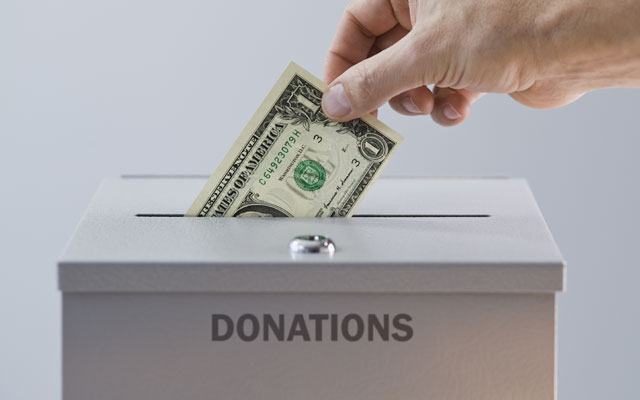Yet Again, Obama Calls for Reducing Charitable Contribution Deduction
Andrew T. Walker /
Like past budget proposals, President Obama’s new budget plan calls—again—for lowering the charitable contribution deduction.
The current tax code allows individuals to deduct their giving from their overall tax liability at a rate equal to their tax bracket. Obama wants to cap the charitable deduction at what it would be for taxpayers in the 28 percent tax bracket.
Right now, for instance, taxpayers in the top bracket can take a deduction at their 39.6 percent rate. So for every $100 donated, the amount they can deduct overall would fall from $39.60 to $28.
Reducing the charitable deduction would weaken this policy that is vital for a sound tax code. And even though Americans give to charities because they believe in their missions, reducing the charitable deduction would undoubtedly cause some citizens to give less to organizations such as charities or churches that play a vital role in strengthening civil society.
This would hurt organizations that depend on donations from wealthy donors. Such organizations will be tasked with doing more with less. As Heritage has written previously:
Few donors give based solely on the charitable deduction, but experts suggest that the tax deduction can influence the manner and the timing of giving and the number and size of the gifts. This is especially true with large gifts from high-income Americans. The proposed reduction of charitable deductions would most affect organizations that depend on donations from donors in the top tax brackets. Universities and medical centers could be hit particularly hard. These institutions and other nonprofits employ many people, so reduced donations would likely reduce employment either by slowing the creation of new jobs or by eliminating existing jobs because of the lack of funds.
This enduring principle still stands: Americans know better how to manage and distribute their money than the federal government. Reducing the charitable tax deduction is a move in the wrong direction. Citizens will control less of their money and organizations that help provide social benefits will suffer.
The government should empower individuals by giving them more control over their hard earned resources, not less.

